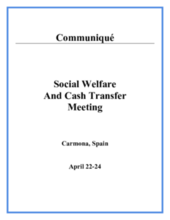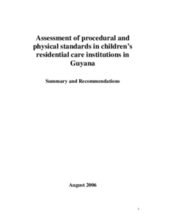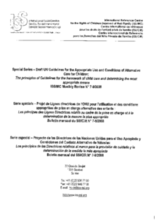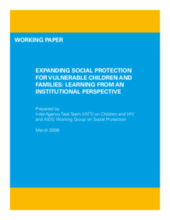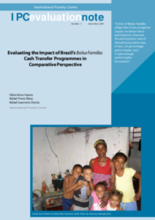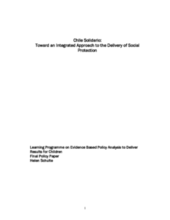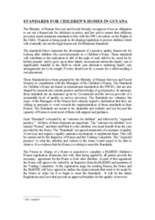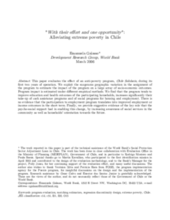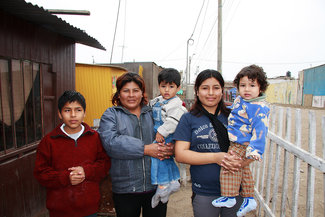

Displaying 321 - 330 of 348
Experts gathered in Carmona Spain to examine the results of policy relevant systemic reviews on social welfare and cash transfers. Meeting delegates explored the findings of reviews on integration of social welfare services and cash transfers in Ghana, Chile, Zimbabwe, Malawi and Kenya.
Examines the capacity of childcare institutions and the monitoring and reintegration meausures necessary to ensure child safety in such.
Evaluates country level implementation of principles set forth in Guidelines.
Examines the institutional challenges in implementing national social protection programmes
Provides analysis on the implementation and outcomes of child abandonment prevention and orphan care programming in Bolivia.
Evaluates targeting and human capital impacts of Brazil's Bolsa Familia Program in comparison with Mexico's Oportunidades, and Chile's Chile Solidario.
Examination of Chile Solidario social protection programme which shows that the focus of policy makers and researchers should be on integration of cash transfers within broader social protection policies.
Highlights key features of the the Bolsa Familia conditional cash transfer (CCT) Program, such as its design and implementation.
A set of standards for measurable quality in service provision for children living in homes. Outlines the rights of a child, planning and legalizing children’s care, children’s home administration, management and staffing, and safeguarding child welfare while in the home, which includes nutrition, health, education and religion.
Evaluates the effect of an anti-poverty program, Chile Solidario, during its first two years of operation. Estimate the impact of the program on a large array of socio-economic outcomes including education, health, housing, and employment. Finds also suggest the key role that psycho-social support had in enabling this change, by increasing awareness of social services in the community as well as households’ orientation towards the future.

